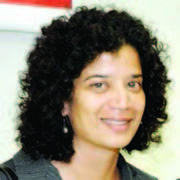 When it comes to technology, many older adults find themselves left in the dark. And yet technology can help combat one of the biggest challenges facing LGBT older adults: isolation. Access to technology can also provide older adults with a host of life-enriching opportunities, from online classes to new social networks and everything in between.
When it comes to technology, many older adults find themselves left in the dark. And yet technology can help combat one of the biggest challenges facing LGBT older adults: isolation. Access to technology can also provide older adults with a host of life-enriching opportunities, from online classes to new social networks and everything in between.
To combat isolation, folks are going online, and connecting with their friends and families through email, Facebook, Skype, and a whole range of online interfaces. While not everyone is interested in being “connected,” San Francisco’s efforts to give all older adults computer access, training and support are proving beneficial. Often, helping others get past their fear of computers and teaching them the basics enables them to connect with others on their own.
Edward Nakatla, a gay older adult, has recently been using ancestry.com to research the history of his father and his father’s family. Through his research, he located his father’s Certificate of Citizenship, dated 1918. Mr. Nakatla, who was born and raised in Alaska, but has lived in San Francisco since 1971, contemplates the meaning of that certificate. For him, it has unearthed thoughts about the Native American customs his father was raised with, and how he took on the role of “civilized white man.” He notes, “The computer is a marvelous tool… When we forget what happened to our family, the computer can help us remember.”
Mr. Nakatla attends Castro Senior Center on Diamond Street where he has been a volunteer for the last five years and has participated in their computer classes and tutoring. Like other centers throughout San Francisco, Castro Senior Center offers basic and intermediate computer classes to help seniors and adults with disabilities learn skills such as setting up an email account, navigating the Internet, and using tools like Facebook and Skype. In addition, students can learn how to conduct a search for employment opportunities and to manage their finances safely and securely online.
Internet access has become a vital link to family, friends, service and health providers. It is also a great source of entertainment and offers ways for engaging creativity and exploring new areas of interest. Paired with assistive technologies, Internet access can help individuals overcome a vast range of disabilities to support their goal of aging in their own homes and communities. Also, older adults are using computers to access brain fitness programs. Brain fitness is like a gym class for the brain. Instead of exercising your abs and quads, you’re working your recall, honing your attention skills, and improving brain speed.
In 2010, San Francisco received a $7.9 million Broadband Technology Opportunities Program (BTOP) grant from the federal government to promote the use of broadband technologies and close the digital divide for San Francisco’s underserved communities. Through the grant, older adults and adults with disabilities gained free computer and Internet access, tutoring and training in more than 50 technical lab sites.
Though the BTOP grant ended last fall (2013), the initiative continues through the SF Connected Program thanks to Mayor Ed Lee and the San Francisco Board of Supervisors. The program is housed in San Francisco’s Department of Aging and Adult Services (DAAS) and the Department of Technology. In addition to the Castro Senior Center, twenty-four community-based service organizations continue to provide free computer training and support. All sites welcome LGBT seniors and adults with disabilities. You do not need to be a member or live in a certain neighborhood to visit any of the sites, access the computers, and take classes.
DAAS and its community partners continue to find ways to bridge the digital divide. This happens through “Swap Meets,” where older adults and adults with disabilities can learn from tech experts about ways that technology can improve their lives, while the tech experts can learn about the needs of individuals. The partners are also working to develop a tech council, which will help bring technical expertise and funding to the SF Connected Program. To learn more about these programs, or to access the computer class schedules and locations, visit www.sfconnected.org or call DAAS at (415) 355-6700.
DAAS provides many other services that assist people to live productive, more meaningful lives. These include, but are not limited to, community services, home care, help understanding Medicare/Medi-Cal benefits, wellness classes, legal services and meals programs. To get general information about services for people with disabilities and seniors in San Francisco, call the DAAS or visit www.sfdaas.org.
Shireen McSpadden has served as Deputy Director of the San Francisco Department of Aging and Adult Services since 2003. She has more than 25 years’ experience providing services to people with disabilities and seniors, in both the nonprofit and public sectors. She holds a Master’s Degree in Nonprofit Administration from the University of San Francisco.
Recent Comments